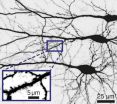(Press-News.org) An educational intervention program for children between kindergarten and 10th grade, known as Fast Track, reduces aggressive behavior later in life, according to research published in Psychological Science, a journal of the Association for Psychological Science.
The research, led by psychological scientist Justin Carré of Nipissing University in Ontario, Canada, indicates that dampened testosterone levels in response to social threats may account for the intervention's success in reducing aggression.
The Fast Track intervention program teaches children social cognitive skills, such as emotional regulation and social problem solving, and previous research suggests that the program may lead to decreased antisocial behavior and aggression in childhood and adolescence.
But it wasn't clear whether the skills that children learned in the program would have impacts that carried over into adulthood.
Carré and colleagues suspected that the program would have long-term effects, and that those effects would be linked to a specific biological mechanism: alterations in testosterone reactivity to social provocation.
To test these hypotheses, the researchers recruited 63 participants from Fast Track schools in Durham, North Carolina. To ensure the participants in the sample were similar demographically, all of the participants were African American men who were about 26 years old.
Half of those participants were involved in the Fast Track program from ages 5-17, consisting of tutoring, peer coaching, home and family visits, and social-emotional learning lessons with friends. The rest of the participants attended the same schools but weren't involved in the Fast Track program.
More than 8 years after the intervention ended, the researchers brought the participants into the lab to play a game, the goal of which was to earn as much money as possible by pressing three buttons: one which accrued money, one which prevented money from being stolen, and another which stole money from an opponent. The participants believed they were playing against an actual opponent, but the game was actually determined by a computer program. The fictitious opponent provoked participants during the task by stealing their hard-earned money.
Overall, participants who completed the Fast Track program showed less aggression toward their opponent – that is, they opted to steal less money from their opponent than did participants who didn't complete Fast Track.
Participants who hadn't received the intervention showed an increase in testosterone levels after having their money stolen, but Fast Track participants didn't, a finding that could explain their reduced aggression.
"Interestingly, there were no differences between intervention and control groups in baseline testosterone concentrations or aggressive behavior at the beginning of the experiment," Carré explains. "Differences in aggressive behavior and testosterone concentrations emerged only later in the game."
Ultimately, the findings suggest that Fast Track was successful in reducing participants' aggression toward a hostile peer in part because it changed the way their neuroendocrine systems responded to social provocation.
Now that they're confident that the effects of the Fast Track program reach into adulthood, the researchers are interested in determining which specific components of the intervention are most effective in reducing aggression, what neural mechanisms underlie aggressive behavior, and whether these results also ring true for women who have participated in the program.
INFORMATION:
Co-authors on this research include: Anne-Marie Iselin of the University of North Carolina Wilmington; Keith Welker of Wayne State University; Ahmad Hariri of Duke University; and Kenneth Dodge of Duke University.
This research was supported by National Institute on Drug Abuse (NIDA) Grants P30DA023026, R01DA016903, and K05DA15226 (to K. A. Dodge) and NIDA Grants R01DA033369 and R01DA031579 (to A. R. Hariri).
For more information about this study, please contact: Justin M. Carré at justinca@nipissingu.ca.
The article abstract is available online: http://pss.sagepub.com/content/early/2014/03/28/0956797614525642.abstract
The APS journal Psychological Science is the highest ranked empirical journal in psychology. For a copy of the article "Lowered Testosterone Reactivity Mediates the Effect of Early Intervention on Aggressive Behavior" and access to other Psychological Science research findings, please contact Anna Mikulak at 202-293-9300 or amikulak@psychologicalscience.org.
Early intervention reduces aggressive behavior in adulthood
2014-04-01
ELSE PRESS RELEASES FROM THIS DATE:
Team finds a better way to grow motor neurons from stem cells
2014-04-01
CHAMPAIGN, Ill. — Researchers report they can generate human motor neurons from stem cells much more quickly and efficiently than previous methods allowed. The finding, described in Nature Communications, will aid efforts to model human motor neuron development, and to understand and treat spinal cord injuries and motor neuron diseases such as amyotrophic lateral sclerosis (ALS).
The new method involves adding critical signaling molecules to precursor cells a few days earlier than previous methods specified. This increases the proportion of healthy motor neurons derived ...
Science: Switching brain cells with less light
2014-04-01
This news release is available in German. Networked nerve cells are the control center of organisms. In a nematode, 300 nerve cells are sufficient to initiate complex behavior. To understand the properties of the networks, re-searchers switch cells on and off with light and observe the resulting behavior of the organism. In the Science journal, sci-entists now present a protein that facilitates the control of nerve cells by light. It might be used as a basis of studies of diseases of the nervous system. DOI: 10.1126/science.1249375
To switch a nerve cell with light, ...
Gratitude, not 'gimme,' makes for more satisfaction, Baylor University study finds
2014-04-01
People who are materialistic are more likely to be depressed and unsatisfied, in part because they find it harder to be grateful for what they have, according to a study by Baylor researchers.
The study — "Why are materialists less happy? The role of gratitude and need satisfaction in the relationship between materialism and life satisfaction" — appears in the journal Personality and Individual Differences.
"Gratitude is a positive mood. It's about other people," said study lead author Jo-Ann Tsang, Ph.D., associate professor of psychology and neuroscience in Baylor's ...
Clinical trial results inconsistently reported among journals, government website
2014-04-01
PORTLAND, Ore. — Medical researchers often presented the findings of their clinical trials in a different way on a federal government website than they did in the medical journals where their studies were ultimately published, according to an Oregon Health & Science University analysis published April 1 in the Annals of Internal Medicine.
Researchers' reports in peer-reviewed medical journals often were more favorable to the drug or intervention being studied than the reports on the government website — ClinicalTrials.gov — which required data for specific categories, ...
Sobering update on Jamaica's largest vertebrate
2014-04-01
In 1990, the Jamaican iguana was removed from the list of extinct species when a small population was re-discovered on the island. Unfortunately, the species continues to be critically endangered, with only a single location left for the recovering population, now greater than 200 individuals, in a protected area called the Hellshire Hills, part of the Portland Bight Protected Area. A recent proposal by Jamaican government officials to allow extensive development in this area is causing concern among conservationists who have been working to save this species and the wealth ...
Baylor professsor's study reveals strength training can decrease heart risks in children
2014-04-01
WACO, Texas (March 31, 2014) – Early strengthening activities can lead to a decrease in cardiometabolic health risks in children and adolescents, according to results of a new study by a Baylor University professor and a team of researchers.
Until recently, treatment for adolescent obesity and associated health problems has focused mostly on diet modifications and aerobic exercise such as walking or swimming.
But a recent research study appearing this month in Pediatrics by Paul M. Gordon, Ph.D., professor and chair of health, human performance and recreation department ...
Male-dominated societies are not more violent, study says
2014-04-01
Conventional wisdom and scientific arguments have claimed that societies with more men than women, such as China, will become more violent, but a University of California, Davis, study has found that a male-biased sex ratio does not lead to more crime.
Rates of rape, sexual assault and homicide are actually lower in societies with more men than women, the study found. And, evolutionary theories predicting that when males outnumber females, males will compete vigorously for the limited number of mates don't bear out. The study, "Too many men: the violence problem?" is ...
Scientific evidence shows need to regulate antimicrobial ingredients in consumer products
2014-04-01
Does the widespread and still proliferating use of antimicrobial household products cause more harm than good to consumers and the environment? Evidence compiled in a new feature article published in the journal Environmental Science & Technology by Arizona State University professor Rolf Halden shows that decades of widespread use of antimicrobials has left consumers with no measurable benefits.
Worse yet, lax regulation has caused widespread contamination of the environment, wildlife and human populations with compounds that appear more toxic than safe, according to ...
Research finding could lead to new therapies for patients with gluten intolerance
2014-04-01
Hamilton, ON (April 1, 2014) Researchers at McMaster University have discovered a key molecule that could lead to new therapies for people with celiac disease, an often painful and currently untreatable autoimmune disorder.
Celiac disease is a food sensitivity to dietary gluten contained in cereals. In people who are genetically predisposed, gluten containing food will trigger an immune response that leads to destruction of the intestinal lining, abdominal pain, changes in bowel habits, malnutrition and many other symptoms that include anemia, and neurological problems. ...
New screening tool to diagnose common sleep problem in children
2014-04-01
OTTAWA, Canada, April 1, 2014 — Clinical investigators at the Children's Hospital of Eastern Ontario (CHEO) have developed a new screening tool to help diagnose obstructive sleep apnea in children. Their findings are published in Pediatric Pulmonology.
Evidence suggests that adults with a large neck circumference are more likely to develop obstructive sleep apnea (OSA), especially males. As neck circumference varies by age and sex, there have been no reference ranges to diagnose pediatric OSA up until now. The new evidence-based diagnostic tool includes reference ranges ...



